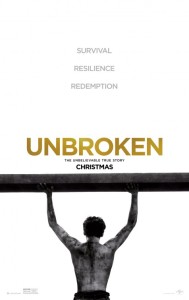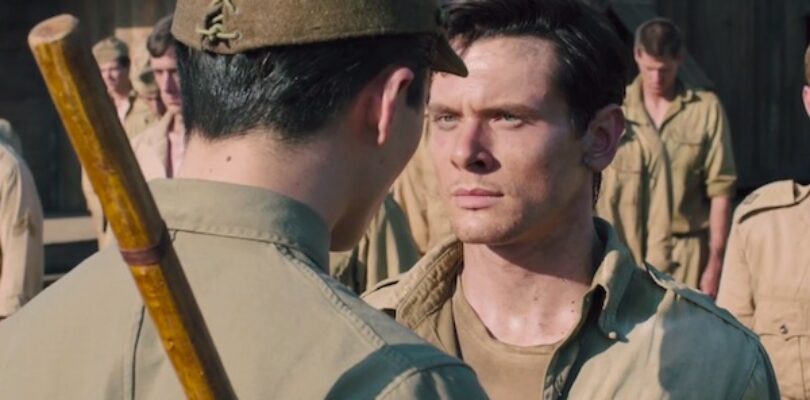
| Release Date: | December 25th, 2014 |
| Starring: | Jack O'Connell, Takamasa Ishihara, Finn Wittrock, Miyavi, Vincenzo Amato, Domhnall Gleeson, Garrett Hedlund, Jai Courtney, Maddalena Ischiale |
| User Rating: | |
| Writer: | Joel Coen, Ethan Coen, Richard LaGravenese, William Nicholson |
| MPAA Rating: | PG-13 |
| Director: | Angelina Jolie |
A few months ago the pared, gritty World War II tank picture Fury, led with muted intensity by Brad Pitt, caused little stir though it was a modest, hard-won victory in an old genre. It was also a far more involving trawl through war hell than the miscast, timid Unbroken. We have served countless tours through combat documents, all that history on film, it comes as a surprise then that director Angelina Jolie’s Unbroken is the first time the courageous feats of Louis Zamperini have been given their big screen due. So many gripping incidents to cull from Laura Hillenbrand’s bestselling account of Zamperini’s life of endurance trials, tortures, and perseverance; an adapted screenplay with input from wordsmiths Ethan and Joel Coen: a perfect cinematic blueprint.

Jack O’Connell (rakish Englishmen playing a 1940s Italian-American son of immigrants) is the Olympic runner turned US flyboy shot down in the Pacific, lasting over a month adrift on a three-man lifeboat, ending up as a POW targeted by Japan’s infamous prison camp overseer “The Mouse” (musician Takamasa Ishihara bringing little but glaring camp to a crucial role). O’Connell is such a bore that it took seeing him endure a parade of punches from his fellow captors before I even started finding him plausible. Jolie casts pretty faces that look era-inappropriate, keeps the look Golden Era clean, wastes the brilliant eye of DP Roger Deakins (No Country for Old Men) with camera sweep borrowed without purpose from Steven Spielberg or Robert Zemeckis, and mistakes incident for drama. Where is the psychology behind Zamperini’s physical endurances? She does not delve. Unbroken’s melodramatic and masochistic episodes become a repetitive challenge that I cannot picture most viewers wanting to sit through twice.
Louis Zamperini deserves his epic; he went through a gauntlet few ever have. Unbroken hits all of the beats; we leave the movie feeling that this man is a stoic hero (nearly too saintly since all of the sins of youth have been whitewashed away in the script). What I did not leave with is a sense of himself or the actual year-long torment Lt. Zamperini endured – what was behind his eyes, how he thought (or didn’t) in the moment. A director’s soft attack and a grit-less lead have produced a routine movie from extraordinary circumstances. Unbroken has to stand as my great disappointment of this holiday season.[box_info]WHERE TO WATCH (powered by JustWatch)
[/box_info]


yorkiegirl16
Just an FYI, the prison camp overseer was nicknamed “The Bird” not “The Mouse”.
refichter
“fellow captors?” or “fellow captives?” I know…nitpicking an otherwise cogent review.